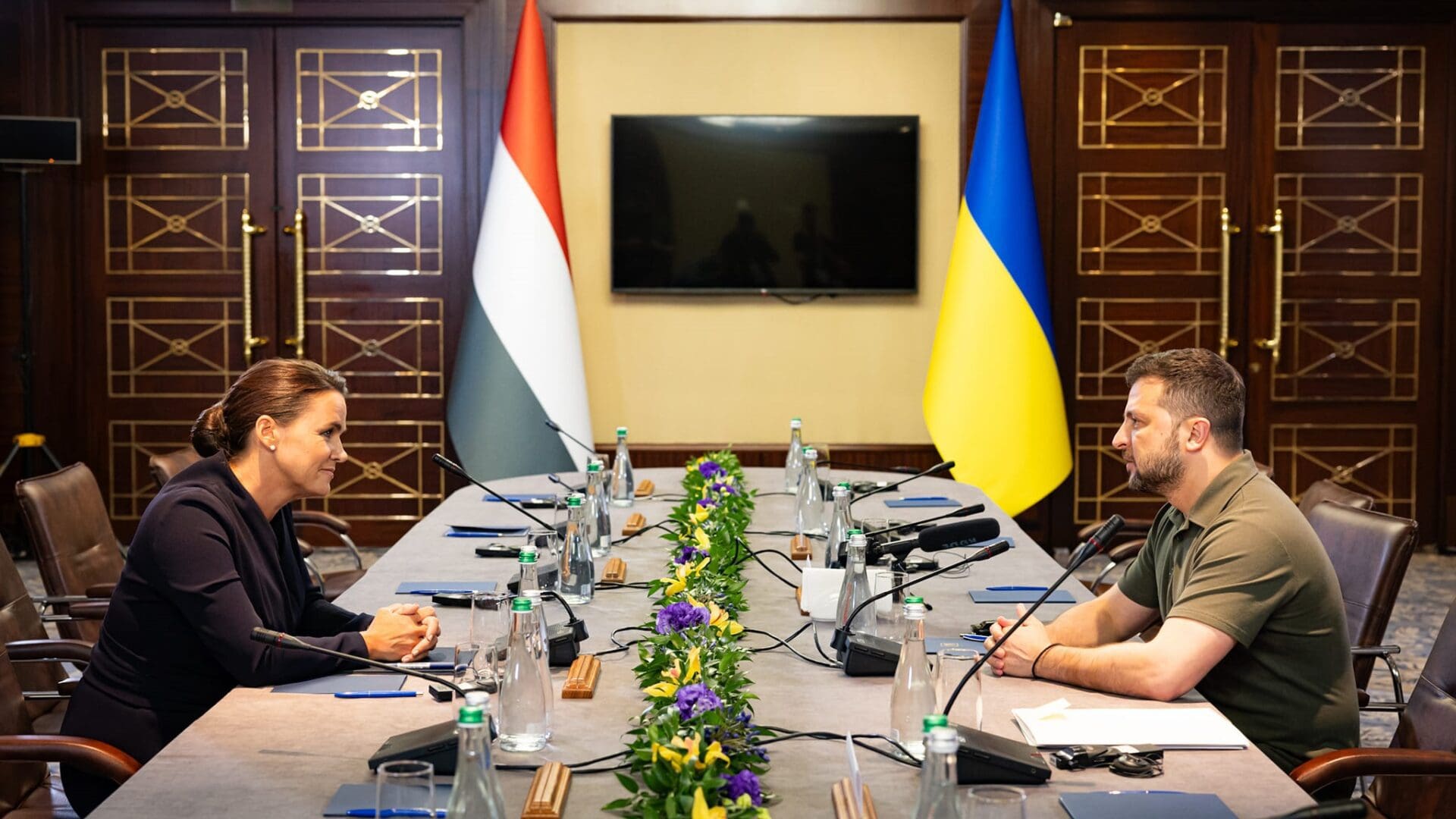It seems that where hard talk fails, soft diplomacy may win. President of the Republic Katalin Novák announced on social media that she and Ukrainian President Volodymyr Zelenskyy reached important agreements during a one-on-one meeting in Kyiv yesterday.
The Hungarian President shared that the two countries have agreed to set up a direct presidential communication channel, ‘as befits neighbours’, for the two presidents to be able to contact each other whenever needed. In addition, the parties will also start drafting a new document on bilateral relations. In terms of the ongoing war, Hungary has promised to provide further assistance, and the two leaders discussed the possibilities of joint work regarding children affected by the war and the Ukrainian president’s peace formula initiative, which the President expressed Hungary intends to join.
Finally, the Presidents also discussed the minority rights of the Hungarian community in Transcarpathia and
agreed to achieve progress as soon as possible.
President Zelenskyy even took to X to thank his Hungarian counterpart for her visit.
Володимир Зеленський on Twitter: “Glad to welcome @KatalinNovak_HU in Ukraine.I am grateful for President Novak’s visit and participation in the Third Crimea Platform Summit.We discussed Ukraine’s EU and NATO integration, as well as ways to develop our bilateral relations.🇺🇦🇭🇺 pic.twitter.com/6DGZ5rJoqZ / Twitter”
Glad to welcome @KatalinNovak_HU in Ukraine.I am grateful for President Novak’s visit and participation in the Third Crimea Platform Summit.We discussed Ukraine’s EU and NATO integration, as well as ways to develop our bilateral relations.🇺🇦🇭🇺 pic.twitter.com/6DGZ5rJoqZ
In another development that might set bilateral relations on a new course, OTP Bank, that has been included in the roster of international companies that are allegedly war sponsors, compiled by the Ukrainian National Agency on Corruption Prevention (NACP),
might be taken off the list, according to NACP chief executive Agia Zagrebelska.
The agency’s head corroborated previous assertions that the issue with OTP Bank revolves around it providing favourable loans to Russian soldiers involved in the Ukrainian operations. This action, according to Ukrainian officials, could be construed as direct funding of the aggressor nation.
Agia Zagrebelska further revealed that NACP, along with Ukrainian diplomats, the Hungarian government, and OTP Bank representatives, has engaged in discussions regarding this matter. She expressed hope that Hungary’s largest commercial bank will imminently declare its cessation of providing preferential loans to Russian military personnel.
Furthermore, NACP anticipates that the financial institution under the leadership of Chairman Sándor Csányi will furnish them with a plan to disengage from the Russian market, a condition NACP firmly asserts. If this condition is met, NACP is willing to promptly remove OTP Bank from its list.
One argument that justified the inclusion of OTP Bank on the blacklist on 4 May this year is that based on available financial data, OTP’s Russian subsidiary reported a profit of 113 million roubles in 2020 and paid a significant sum of about 190 million roubles in income tax to the aggressor nation’s budget. The Ukrainian anti-corruption agency asserts that there is media-reported evidence that the bank extends preferential credit terms to the Russian military. Nonetheless, as highlighted by Hungarian constitutional lawyer Zoltán Lomnici Jr, OTP Bank does not provide loans to Russian armed forces members, whether preferential or not, and its operations are in line with the conditions of international sanctions.
Interestingly, investors do not appear perturbed by OTP Bank’s inclusion or omission from the aforementioned list. Throughout the week, investors have consistently purchased the bank’s shares, propelling the OTP share price to a level not witnessed since February.
The Hungarian government has indicated its full support for the Hungarian financial institution on multiple occasions. In the second quarter, OTP Bank’s Russian subsidiary bank achieved a profit after tax amounting to 7.9 billion roubles (EUR 77.4 million).
Read more:








